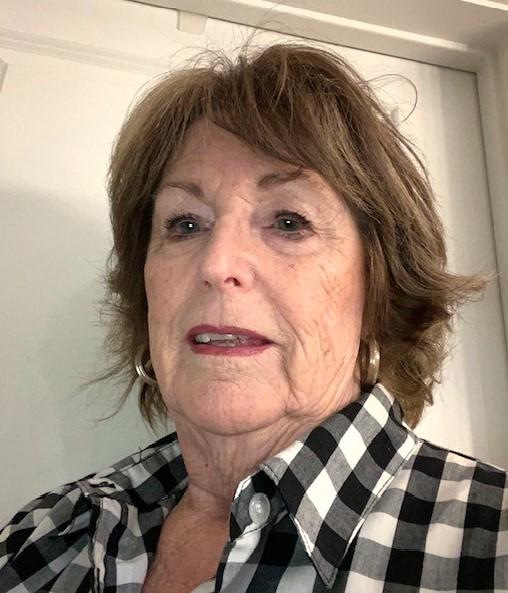
-
Understanding primary immunodeficiency (PI)

Understanding PI
The more you understand about primary immunodeficiency (PI), the better you can live with the disease or support others in your life with PI. Learn more about PI, including the various diagnoses and treatment options.
-
Living with PI
-
Addressing mental health
-
Explaining your diagnosis
- General care
- Get support
- For parents and guardians
-
Managing workplace issues
- Navigating insurance
-
Traveling safely

Living with PI
Living with primary immunodeficiency (PI) can be challenging, but you’re not alone—many people with PI lead full and active lives. With the right support and resources, you can, too.
-
Addressing mental health
-
Get involved

Get involved
Be a hero for those with PI. Change lives by promoting primary immunodeficiency (PI) awareness and taking action in your community through advocacy, donating, volunteering, or fundraising.
-
Advancing research and clinical care
-
Grants
-
IDF surveys
-
Participating in clinical trials
-
Diagnosing PI
-
Consulting immunologist
-
Clinician education

Advancing research and clinical care
Whether you’re a clinician, researcher, or an individual with primary immunodeficiency (PI), IDF has resources to help you advance the field. Get details on surveys, grants, and clinical trials.
-
Grants

Bonnie Doak has the original correspondence that launched her decades-long career as a volunteer for the Immune Deficiency Foundation (IDF)—a letter she wrote to IDF founder Marcia Boyle in 1991 inquiring how she could be of service to the organization.
Doak keeps that letter alongside Boyle’s thank you response and correspondence with a University of California San Francisco (UCSF) immunologist who helped her establish the first West Coast meeting for persons with primary immunodeficiency (PI).
“It was an educational group where patients and their relatives or friends could come and get information and a better understanding of this disease,” explained Doak, diagnosed with common variable immune deficiency (CVID) in the 1980s.
Thirty-three years later, Doak co-leads the virtual Northern California Get Connected Group (GCG) and is not hesitant to tell others she is 80.
“As I've gotten older, I throw my age out there often. The reason I do it is because patients have told me it helped them to know that they could live this long, even with health issues. It gives them hope and I wasn't given any of that,” said Doak.
“I tell people they’re going to live a full life if they take care of themselves, barring any major medical complications. If you get in with a good doctor and take care of yourself, you can live a good life. I have and so should you.”
Growing up in the mountains of Santa Cruz, California, Doak didn’t know the cause of her upset stomach and urinary tract infections. After she married at 18 and became a mother, simple colds turned into pneumonia, and cases of flu led to hospitalization. Childhood trauma, combined with her poor health, led to a mental health crisis.
“I saw a psychiatrist and just dug in and took care of business,” said Doak, who recovered with the help of a support group for those living with depression and anxiety.
Doak’s husband, Tom, her greatest advocate, encouraged her to keep seeking specialists to determine the source of her unending illnesses. Eventually, an infectious disease doctor diagnosed Doak with IgA deficiency, then selective IgA deficiency, and finally, CVID when she was 40.
As she navigated her physical and mental health, Doak volunteered to lead her mental health support group and then traveled throughout the U.S., helping establish new groups and assisting others.
“It was on-the-job training,” said Doak.
When Doak shifted to volunteering for IDF, she parlayed her leadership skills into not only establishing a fledging PI education group but also writing and assembling a bi-monthly newsletter she mailed out to group members. She and others also held fundraisers, celebrating when they could raise a few thousand dollars for IDF.
IDF recognized Doak’s talent for organizing and sent her throughout California and to other locations like Las Vegas and Louisiana to establish PI education groups. She also staffed IDF booths at conferences for the American Academy of Allergy, Asthma & Immunology (AAAAI) and the Clinical Immunology Society (CIS).

Her dedication led to a 12-year appointment to the IDF Board of Trustees from the late 1990s through the early 2000s. She was the first person diagnosed with PI on the board.
“They had caretakers and doctors on the board but no actual patients,” said Doak, who requested the patient representation.
Doak also pushed for adult patient experiences to be included in the IDF Patient and Family Handbook because most of it, at the time, was focused on children. IDF leaders gave Doak the responsibility of crafting a chapter on what it’s like to be diagnosed with PI as an adult. As she wrote, another key person asked for inclusion in the handbook.
“I remember my husband coming upstairs as I was writing, and he said, ‘Hey, what about me? Do you think this doesn't affect me? How come you don't have anything in there about how it affected your husband and your family?” said Doak. She listened to her husband’s feedback and included caretakers’ experiences as part of her chapter.
Doak’s contributions to the PI community extend beyond IDF. For 17 years, she traveled to the National Institutes of Health (NIH) in Washington, D.C., three times a year so researchers could collect biological samples and examine her health.
She appreciated the clinicians who cared for her both at NIH and UCSF, but there were differences of opinion about treatment. Her UCSF doctor wanted to try immunoglobulin (Ig) replacement therapy, but the NIH provider disagreed.
“Who do I listen to? The doctor at NIH isn’t seeing me every day and doing the basic stuff. He's way out there doing the more extensive stuff. He’s putting the frills on the decorating, you know? Do you listen to the basic decorator or the one that does the last-minute touches on it?” said Doak.
“But I did go on it because the UCSF doctor said, ‘Bonnie, he's a great doctor, but he's not seeing patients for daily care, and he doesn't see you through these struggles. And I'm trying to help you survive this life.’ I still was sick a lot, but there was a noticeable difference with treatment. I didn’t get sick quite as often, and I didn't get the complications as often.”
Doak examined her own family’s health after her diagnosis. She has nine first cousins who died from complications related to flu and colds, and she called another cousin who struggled with illness to recommend he get tested for PI.
“This macho guy cried on the phone, and he said, ‘Bonnie, I know I’ve got it. Thank you for calling me,” said Doak. “He got diagnosed with hyper IgM syndrome.”
Doak stays mostly healthy through weekly infusions of subcutaneous immunoglobulin (SCIG) replacement therapy, but she developed sepsis this past winter. Since she’d had it before, she knew the symptoms, but the emergency room (ER) doctor sent her home despite her failing health. When she returned the next day, he ignored her concerns a second time.
“I was crying. I told him, ‘If you send me home, I’m going to die,” she recalls.
Doak said her doctor “tangled with” the ER doctor, who then admitted her. Blood tests showed she had two rare types of bacteria in her colon that caused the infection. She was on intravenous antibiotics for 10 days and more antibiotics at home for four additional days.
It’s rare for Doak to stay in bed if she doesn’t feel well, and she’ll push herself to get dressed, put her makeup on, and go out and about shopping or having lunch.
“It’s called trying to get through in life and listening to your pace. And I do,” said Doak.
When she’s not participating in IDF events, spending time with family and friends, and enjoying her favorite hobby, painting, Doak volunteers to educate medical students on the importance of the patient perspective.
“Listen, listen, listen. Listen to your patients—especially if they have a chronic illness,” Doak tells the students. “I know more about this than you may ever know because I live it.”
Related resources
Sign up for updates from IDF
Receive news and helpful resources to your cell phone or inbox. You can change or cancel your subscription at any time.





The Immune Deficiency Foundation improves the diagnosis, treatment, and quality of life for every person affected by primary immunodeficiency.
We foster a community that is connected, engaged, and empowered through advocacy, education, and research.
Combined Charity Campaign | CFC# 66309




